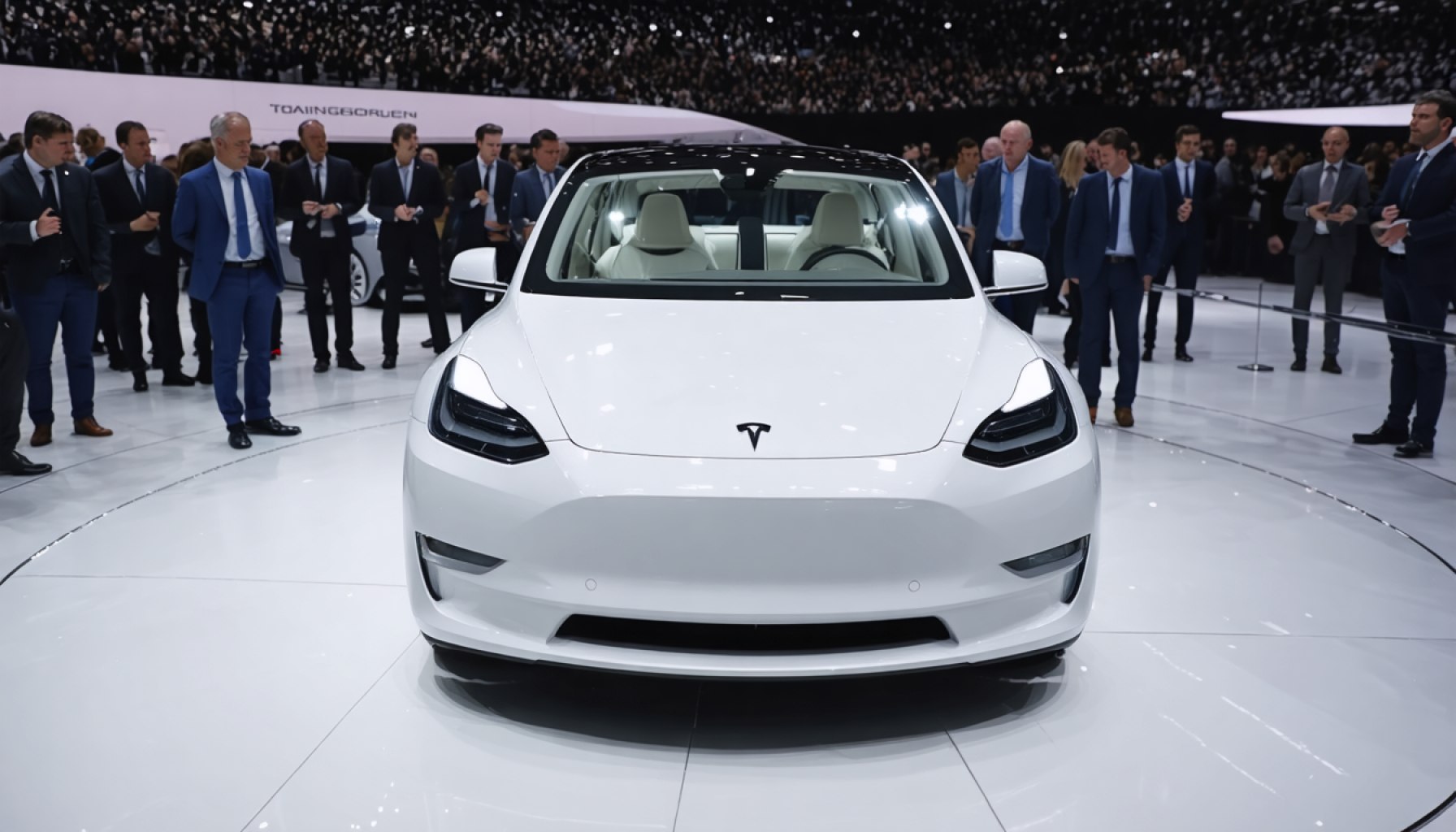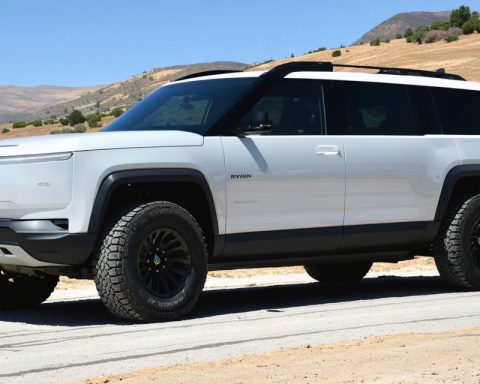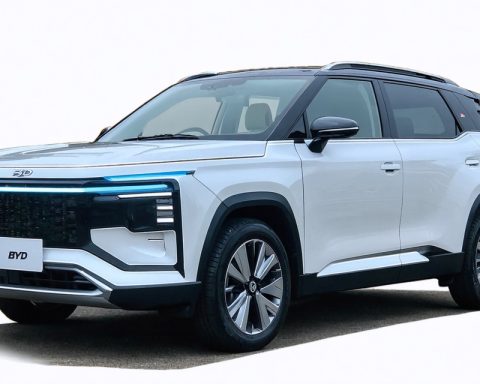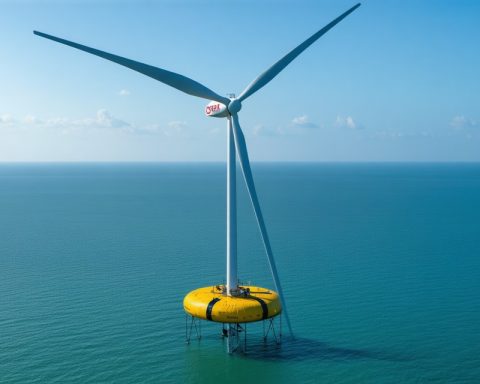- Tesla’s market share in Europe has significantly declined, with a 44% drop in sales, marking a five-year low.
- Competition has intensified, with Volkswagen and BMW delivering strong sales performances and Chinese brands like BYD and Polestar expanding rapidly.
- Elon Musk’s controversial political endorsements have sparked debate on their impact on consumer sentiment, highlighting the potential influence of CEO personas on brand loyalty.
- Brands with limited product lines are vulnerable during model transitions, as exemplified by Tesla’s current challenges amid fierce market competition.
- Despite a 25% surge in electric vehicle registrations in Europe, Tesla’s challenges emphasize the need for alignment with consumer needs and market trends.
- Tesla must adapt strategies to regain its market position as standing still in a competitive field could result in being surpassed by rivals.
Beneath the glittering allure of Europe’s advanced automotive landscape, Tesla finds itself wrestling with a formidable set of challenges. Once the darling of the electric vehicle revolution, Tesla’s iron grip on the European market has visibly weakened, evidenced by a staggering 44% drop in sales in February. Where the Model Y once signaled Tesla’s dominance, the company now grapples with a diminished presence, its market share dropping to a five-year low.
A cocktail of competition and controversy underpins this decline. Rivals like Volkswagen and BMW have surged ahead, riding on robust and diverse product lines. Volkswagen’s sales catapulted 180%, reaching nearly 20,000 units, while BMW’s roster, bolstered by its Mini brand, has also performed admirably. Meanwhile, Chinese brands such as BYD and Polestar have staged remarkable growth, overshadowing Tesla’s once formidable status by expanding their market presence with bold strides.
Beyond the numbers, Tesla’s challenges are intricately linked to its charismatic CEO, Elon Musk. Known for his unfiltered online persona, Musk’s political endorsements have stirred enough controversy to potentially impact consumer sentiment. His recent public support for Europe’s far-right parties on social media has raised eyebrows and stirred debate over whether political views can indeed sway purchasing habits in a market where consumer loyalty is pivotal.
Felipe Munoz, an astute global analyst at JATO Dynamics, observed that brands with relatively limited product lines, like Tesla, are particularly vulnerable during transitional periods, such as model changes. Tesla’s current predicament underscores this vulnerability, further amplified by the competitive climate and Musk’s polarizing political engagements.
As Europe’s automotive market experiences a gentle decline of 3% overall, the electric vehicle sector defies gravity with a 25% surge in registrations. This underlines the irrefutable shift toward sustainable mobility. Yet, despite this growth, Tesla’s slip suggests that innovation alone cannot suffice; broadening consumer appeal and strategically aligning with the market’s evolving needs are imperative.
The Tesla narrative in Europe presents a critical lesson: in a rapidly advancing arena, standing still equates to moving backward. The brand now faces a crossroads — either recalibrate strategies to regain its foothold or risk fading amidst a sea of competitors who are not only catching up but overtaking. As the landscape continues to shift, adaptability and consumer alignment appear to be the keys to ensuring Tesla’s continued relevance and success on the global stage.
Tesla’s Turbulence in Europe: Can Elon Musk’s EV Giant Regain Its Foothold?
Understanding Tesla’s Challenges in the European Market
Tesla, once a trailblazer in the electric vehicle (EV) space, is facing substantial hurdles in Europe, with its sales dropping significantly by 44% in February. This decline signals a notable shift in the European automotive landscape where competition is fierce and consumer preferences are rapidly evolving.
Market Forecasts & Industry Trends
1. Competitive Pressure from European and Chinese Automakers: Tesla’s dominance is being challenged by European brands like Volkswagen, which experienced a 180% sales increase, and BMW, along with Chinese companies like BYD and Polestar. These competitors are aggressively expanding their offerings and enhancing their market presence, threatening Tesla’s position.
– Volkswagen’s expansion in the EV sector is particularly noteworthy. Its platform, dubbed MEB, is supporting a broad array of affordable yet high-quality electric models, giving consumers more options at competitive prices.
2. Changing Consumer Dynamics: The shift towards sustainability has catalyzed the growth of the EV sector, with registrations surging by 25%. Yet, Tesla’s limited product line—a facet stressed by JATO Dynamics’ analyst Felipe Munoz—presents a significant challenge in capturing a deeply segmented and evolving consumer base.
Controversies & Limitations
– Elon Musk’s Polarizing Persona: Tesla’s brand image is intricately linked to its CEO, Elon Musk, whose political endorsements, particularly his recent support for far-right parties, may be influencing consumer sentiment. This polarizing image could be a double-edged sword in Europe, where consumer loyalty is crucial.
– Reliance on Singular Models: Tesla’s strategy of focusing on flagship models like the Model Y might not be sustainable in the face of a diversified market landscape. While innovation remains key, augmenting this with a broader product offering might be essential to regain market share.
Insights & Predictions
– Strategic Recalibration for Growth: Tesla may need to reconsider its approach, possibly by:
– Expanding Product Lines: Diversifying its offerings to cater to varied consumer needs and preferences in Europe.
– Local Manufacturing: Increasing production capacity within Europe, potentially through its Gigafactory in Berlin to sidestep import tariffs and decrease delivery times.
– Revamping Marketing Strategies: Aligning marketing campaigns to emphasize sustainability, innovation, and value—a stark contrast to controversies tied to political views.
Pros & Cons Overview
Pros:
– Brand Recognition: Tesla remains a leading EV brand recognized globally for innovation and cutting-edge technology.
– Advanced Technology: Continues to lead in aspects like battery technology and autonomous driving features.
Cons:
– Market Saturation: Increasing competition from both well-established and emerging brands.
– Public Perception: Influenced by controversies surrounding its CEO and limited product range.
Conclusion: Actionable Recommendations
1. Diversify and Innovate: Broaden Tesla’s portfolio to appeal to different consumer segments and accommodate evolving preferences.
2. Boost Consumer Confidence: Focus on reinforcing positive brand values, distancing from polarizing political statements that may affect marketability.
3. Strategic Partnerships: Consider collaborations with local players to enhance market penetration and enrich offerings.
For more about sustainable mobility and the latest in automotive trends, visit BMW and Volkswagen.
Developing a nuanced, responsive strategy will be pivotal for Tesla as it navigates Europe’s complex automotive landscape. Understanding the intricacies of consumer demand and adjusting quickly to market changes will determine its ability to not only compete but thrive in this next era of electric vehicles.














